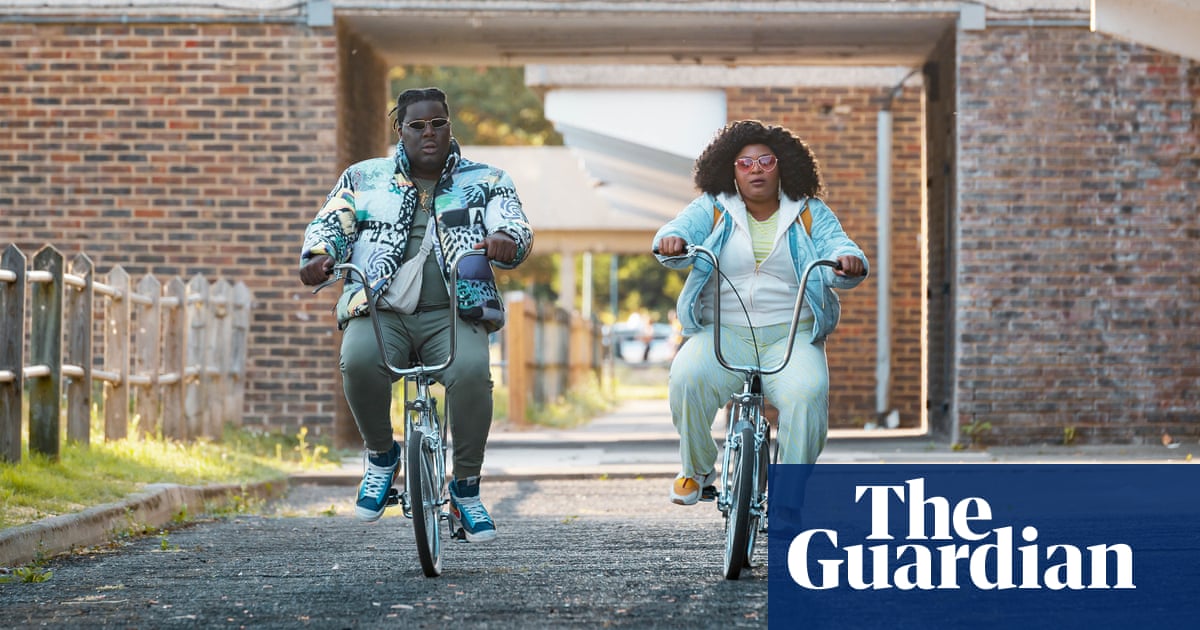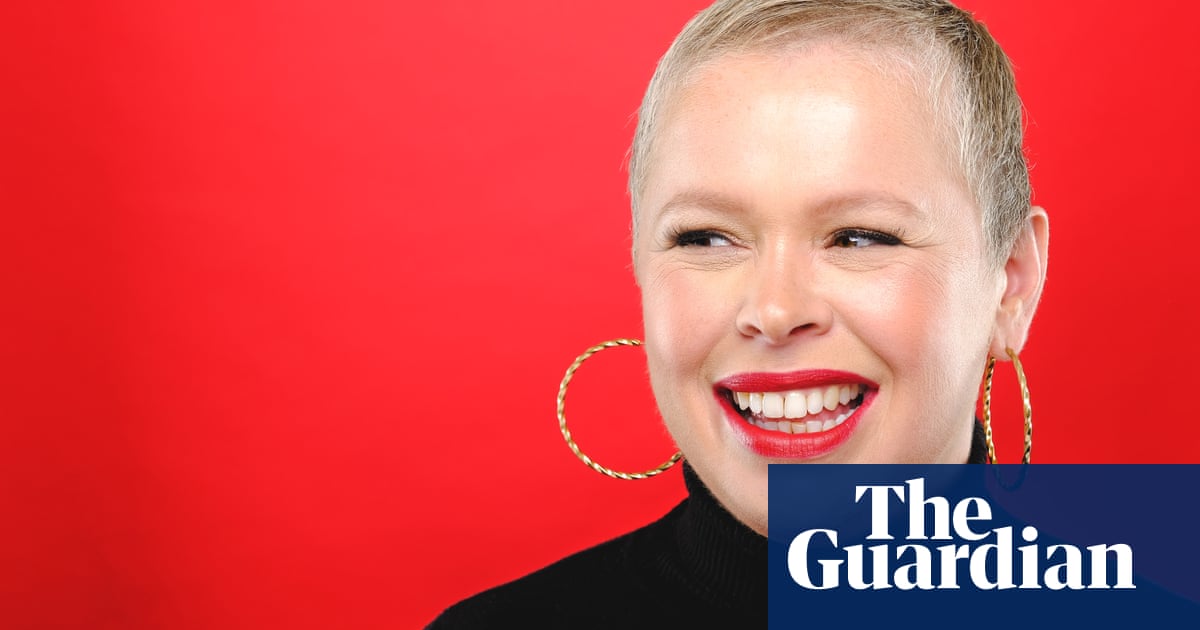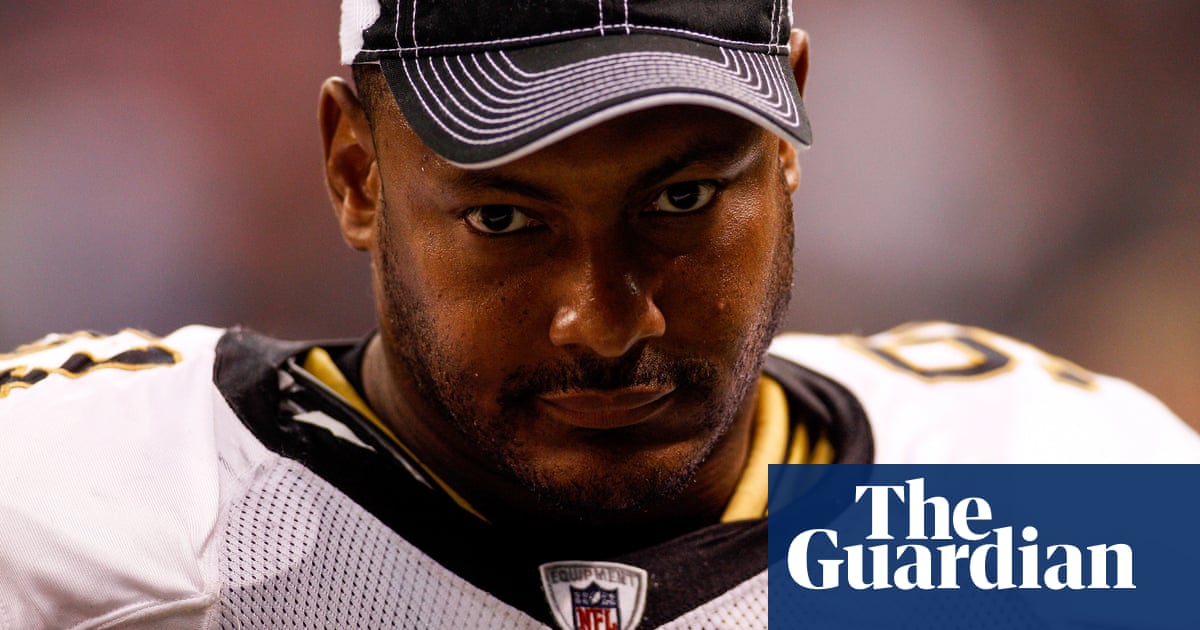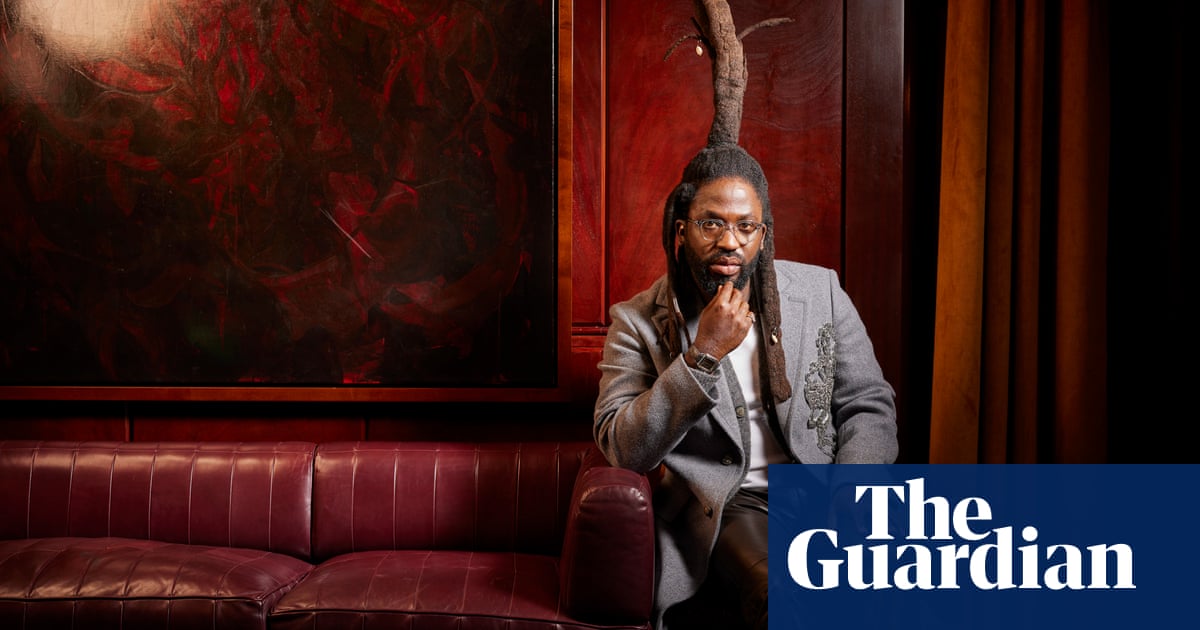
On an east London council estate, two hoodie-clad dealers on a street corner sell baggies of heroin to local addicts. An armed gang swagger over to protect their patch, demanding to know where they got their “food” and whether they’re “feds”. But no, this isn’t the new series of Top Boy. Welcome to Black Ops, one of the funniest, freshest homegrown sitcoms of 2023.
Black Ops comes from the Famalam stable, reuniting two of the groundbreaking Black British sketch show’s leading lights. Bafta-winning actor and Famalam creator Akemnji “AK” Ndifornyen teams up with comedy firecracker Gbemisola Ikumelo, a fellow Bafta-winner, because of a long-held certainty that may not be suitable for his mother. “Right from the first day of shooting Famalam, I said: ‘We need to create a vehicle for Gbemi because she’s [expletive] brilliant!’ Don’t put the expletive in there because my mum will be reading,” he says. Ikumelo didn’t need asking twice: “I came along with a notepad full of ideas, but what I really wanted to do was a buddy show, a comedy caper.”
The result is an ambitious comic thriller, co-written by the duo, following no-nonsense Dom (Ikumelo) and naive Kay (rising star Hammed Animashaun), police community support officers who joined the Met in the hope of cleaning up their neighbourhood. Instead, they find themselves handing out leaflets and being dubbed “the shit police” by scornful residents because they have no powers of arrest.
That is until detectives need eyes inside a Hackney drug gang and their white officers don’t fit the bill. Dom and Kay suddenly find themselves thrust into the murky world of deep cover, off-the-books infiltration, working for gang boss Tevin (Ndifornyen) – a hardcore, high-stakes mission for which they’re woefully unprepared.
The punningly titled series blends a gripping procedural plot with sitcom gags and cartoonish slapstick, often exploiting the 13in height difference between the stars. Kay flashes his “bum bum” at some pensioners, though Animashaun is at pains to point out it’s a body double (“Props to him – he has a great butt”). Caught burying something dodgy on the marshes, Kay and Dom avert suspicion by pretending to be doggers. Small problem: Kay doesn’t know what dogging means.
There are chases in cars, on e-scooters and low-rider bicycles. “I couldn’t ride a bike before this, so I had to learn,” says Ikumelo. “It was hellish. You’ll notice I’m really crap.” “We handled firearms, too,” says Ndifornyen. “Our principal armourer worked on the Bond films, so I had a jolly time grilling him about that.”
Why a genre-defying comedy-thriller? “We’re just trying to get some of that sexy drama budget,” deadpans Ndifornyen. “No, it’s about balancing the funny with irresistible plot. You’re laughing at the unenviable situation Dom and Kay are in, but there’s a real threat they need to extricate themselves from. It’s like they’ve stumbled into the wrong genre. Donnie Brasco becomes a fiasco.”
Considering the subject matter and setting, Top Boy comparisons are inevitable. “We wanted to mess with people’s expectations when they see Black people on TV,” says Ikumelo. “Nobody looks at me and thinks: ‘She’d make a great action hero.’ So I was like, OK, I’ll write it for myself.”
For Ndifornyen, the Top Boy links go deeper: “I’m very close with Ashley Walters. To subvert the Top Boy world for comic purposes felt like a cool place to start. Ashley came to a Black Ops screening last week. I think he enjoyed it. He’s very honest so he would’ve sent a raspy, strongly worded voicenote if he didn’t. Besides, he was given free popcorn so he can keep quiet.”
As a huge Famalam fan, Animashaun was “gassed” to get the call to play Kay for the pilot episode – even if the self-effacing gentle giant assumed he was a placeholder for another actor. “The whole time, I thought I was just helping out. Usually when you see big dudes like me, we’re bodyguards or club doormen, standing silently with our arms folded.” He strikes a pose to illustrate his point and Ikumelo squeals with delight: “I can see it now! Right, next I’m writing you a doorman part.”
The lead trio’s characters shatter all sorts of stereotypes. Kay runs a prayer group and lives with his church elder. “He’s a God-fearing man, which you don’t often see on telly,” says Animashaun. “He might look intimidating but as soon as he opens his mouth, you realise he’s sweet and gullible. He sees the good in everyone, which lands him in a lot of trouble.”
Dom is more middle class than her tough front might suggest. Her father is a paediatrician and she has a first-class degree in criminology. “We wanted to represent different kinds of Black experience,” says Ikumelo. “People who don’t quite fit into that street aesthetic. I’m a weird contradiction myself. I’m diasporan, so I can go back to Nigeria and have a driver but I grew up here in a council flat. My dad has a PhD but I was ‘hood adjacent’. I knew people in gangs and who went to prison. A hodgepodge of factors inform my life, so it’s lovely to reflect that on screen.”
Despite her noble intentions, Dom has become jaded by police work, insisting: “I’m only in this game for the free tube travel, parking in disabled bays and 10% off at Cineworld.” It’s partly bravado after being repeatedly passed over for promotion due to her race and gender. “Her fellow officers at the station don’t even realise she works there,” says Ikumelo. “She’s been there for four years and they’re still like: ‘Oi, why are you in a restricted area?’ She’s this invisible Black woman in a white men’s space. Now, finally someone sees her potential.”
Even Tevin isn’t a one-dimensional baddie. We see him playing with his toddler as well as running a ruthless criminal enterprise. “It’s good to show something beyond brandishing weapons and packing bags of powder,” says Ndifornyen. His reference points came from prestige US TV: “Intriguing, nuanced characters like Stringer Bell [The Wire] or Gus Fring [Breaking Bad]. They’re not paper gangsters, they run sophisticated operations. They’re villains you end up rooting for.”
As well as being grounded in real-world research and off-the-record conversations with police officers, Black Ops’ scripts are steeped in the lore of TV cop drama. A moody Black detective is dismissed as “a budget Idris”. Dom mutters: “This is some Line of Duty shit.” Ndifornyen believes such name-checks serve a dual purpose: “The beauty of modern TV writing is it’s very intertextual. You can be meta and nod to things that have gone before. It gives the audience a shortcut into a world they understand. It also suggests these characters have an awareness of culture around them, like how Tony Soprano’s crew make constant Godfather references.”
A high-calibre supporting cast includes such stalwarts as (deep breath) Joanna Scanlan (No Offence), Ariyon Bakare (His Dark Materials), Felicity Montagu (Alan Partridge’s Lynn), Lucian Msamati (Gangs of London), Katherine Kelly (Happy Valley) and Zoë Wanamaker (everything). “A veritable feast of comedy and drama faces,” says Ndifornyen proudly.
All three stars come from east London, which turned filming on location into a party atmosphere. “I felt like the mayor because I was holding court so much,” says Ndifornyen. “I was like: ‘One sec, hold this take because that’s my dad’s old mate over there. I’ve got to shake his hand!’”
“I bumped into my old music teacher and had a good old chinwag,” says Animashaun. “He asked: ‘What are you doing here?’ ‘Starring in a TV show!’ ‘Woah!’”
Behind Black Ops’ goofy humour lies serious intent. “My first memory of dealing with police was driving my car at 2am with my hoodie up – it was cold and I was probably going for a cheeky McDonald’s – and getting pulled over,” says Ikumelo. “When the cop came up to my window, I took my hood down and he said: ‘Oh sorry, we thought you were a bloke.’ Then he let me go. That’s never left me. I also know how many Black men die in police custody and how families struggle to get justice. Laughter is a disarming way of addressing issues. Rather than being overly political, we do it with lightness of touch. That’s the joy of this show.”
Animashaun agrees: “Growing up on my estate in Whitechapel, we had a tumultuous relationship with the police. Maybe if there were more outreach officers like Dom and Kay, it would be better. Black Ops shines a light on community policing. Yes, we’re trying to make people laugh but conversations will happen around this show. That’s important.”
It’s a pleasant surprise that Black Ops is airing on primetime BBC One, rather than tucked away on BBC Three. “I was reared on Friday night sitcoms, so it’s a beautiful full circle for me,” says Ikumelo. “I’m emotional thinking about it. Black-led shows on primetime don’t happen often, if ever.”
“It’s amazing to get such an auspicious slot,” says Ndifornyen. “It’s number one on the dial, which is a step forward for representation. As a child of the 90s, we were fed a healthy diet of American films and TV shows with Black characters centralised. It’s only in the last 10 years that the UK has started catching up. It used to be one in, one out. Great series like 55 Degrees North or Moses Jones would come along, then go too soon and there’d be another dearth. Now we’re inescapable. Try and stop us. You can’t!”












